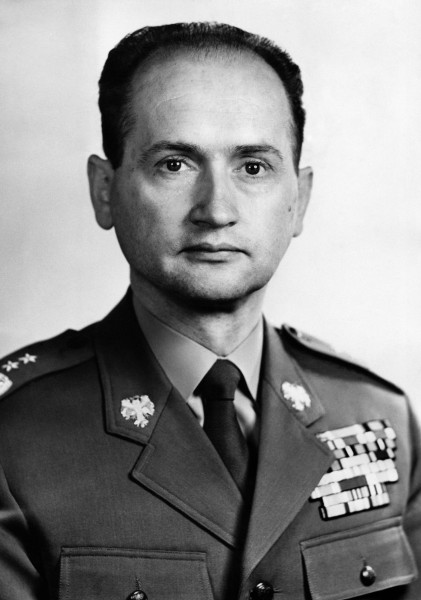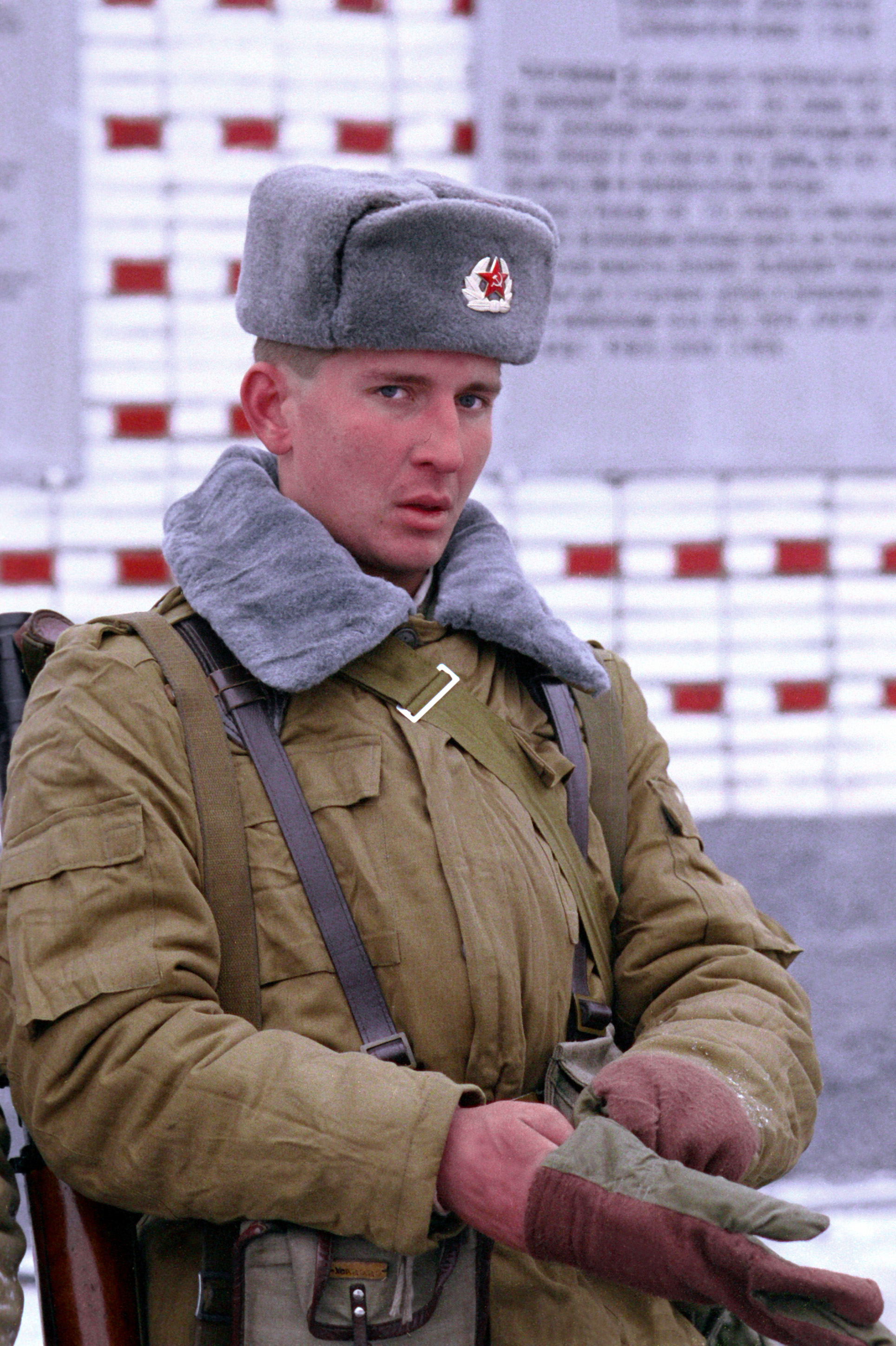|
1981 Warning Strike In Poland
The 1981 warning strike in Poland was a four-hour national warning Strike action, strike that took place during and in response to the Bydgoszcz events. In the early spring of 1981 in Polish People's Republic, Poland, several members of the Solidarity (Polish trade union), Solidarity movement, including Jan Rulewski, Mariusz Łabentowicz, and Roman Bartoszcze, were beaten by the security forces, including Milicja Obywatelska and the Motorized Reserves of the Citizens' Militia, ZOMO. The ''Bydgoszcz events'' soon became widely known across Poland, and on 24th March 1981, Solidarity called for a nationwide Strike action, strike in protest against the violence. The strike was planned for Tuesday, 31st March 1981. On 25th March, Lech Wałęsa met Deputy Prime Minister Mieczysław Rakowski of the Polish United Workers' Party, but they were unable to come to an agreement. Two days later, the warning strike took place. It was the most highly participated strike in the history of both Polan ... [...More Info...] [...Related Items...] OR: [Wikipedia] [Google] [Baidu] |
Poland
Poland, officially the Republic of Poland, is a country in Central Europe. It extends from the Baltic Sea in the north to the Sudetes and Carpathian Mountains in the south, bordered by Lithuania and Russia to the northeast, Belarus and Ukraine to the east, Slovakia and the Czech Republic to the south, and Germany to the west. The territory has a varied landscape, diverse ecosystems, and a temperate climate. Poland is composed of Voivodeships of Poland, sixteen voivodeships and is the fifth most populous member state of the European Union (EU), with over 38 million people, and the List of European countries by area, fifth largest EU country by area, covering . The capital and List of cities and towns in Poland, largest city is Warsaw; other major cities include Kraków, Wrocław, Łódź, Poznań, and Gdańsk. Prehistory and protohistory of Poland, Prehistoric human activity on Polish soil dates to the Lower Paleolithic, with continuous settlement since the end of the Last Gla ... [...More Info...] [...Related Items...] OR: [Wikipedia] [Google] [Baidu] |
Mieczysław Rakowski
Mieczysław Franciszek Rakowski ( Polish: ; 1 December 1926 – 8 November 2008) was a Polish communist politician, historian and journalist who was Prime Minister of Poland from 1988 to 1989. He served as the seventh and final First Secretary of the Polish United Workers' Party from 1989 to 1990. Career Rakowski was born in a peasant family and operated a lathe as a teenager. He served as an officer in the Polish People's Army from 1945 to 1949. He began his political career in 1946 as a member of the Polish Workers' Party, and from 1948 to 1990 he was a member of the communist Polish United Workers' Party (''PZPR''), serving on its Central Committee from 1975 to 1990. He received a doctorate in history from Warsaw's Institute for Social Sciences in 1956. Rakowski served as the second-to-last communist Prime Minister of Poland from September 1988 to August 1989 ( Czesław Kiszczak then served less than a month as the last Communist to hold the post, before the accession of ... [...More Info...] [...Related Items...] OR: [Wikipedia] [Google] [Baidu] |
Bronisław Geremek
Bronisław Geremek (; born Benjamin Lewertow;"Mój polski brat (My Polish Brother)", interview with Jerry Lewart, by Waldemar Piasecki 6 March 1932 – 13 July 2008) was a Polish and politician. He was an opposition activist in the and participated in the |
Wojciech Jaruzelski
Wojciech Witold Jaruzelski ( ; ; 6 July 1923 – 25 May 2014) was a Polish military general, politician and ''de facto'' leader of the Polish People's Republic from 1981 until 1989. He was the First Secretary of the Polish United Workers' Party between 1981 and 1989, making him the last leader of the Polish People's Republic. Jaruzelski served as Prime Minister of Poland, Prime Minister from 1981 to 1985, the Polish Council of State, Chairman of the Council of State from 1985 to 1989 and briefly as President of Poland from 1989 to 1990, when the office of President was restored after 37 years. He was also the last commander-in-chief of the Polish People's Army, which in 1990 became the Polish Armed Forces. Born to Polish nobility in Kurów in eastern (then-central) Poland, Jaruzelski was deported with his family to Siberia by the NKVD after the invasion of Poland. Assigned to forced labour in the Siberian wilderness, he developed photokeratitis which forced him to wear protect ... [...More Info...] [...Related Items...] OR: [Wikipedia] [Google] [Baidu] |
Bydgoszcz
Bydgoszcz is a city in northern Poland and the largest city in the historical region of Kuyavia. Straddling the confluence of the Vistula River and its bank (geography), left-bank tributary, the Brda (river), Brda, the strategic location of Bydgoszcz has made it an inland port and a vital centre for trade and transportation. With a city population of 339,053 as of December 2021, Bydgoszcz is the eighth-largest city in Poland. Today, it is the seat of Bydgoszcz County and one of the two capitals of the Kuyavian-Pomeranian Voivodeship as a seat of its centrally appointed governor, a voivode. Bydgoszcz metropolitan area comprising the city and several adjacent communities is inhabited by half a million people, and forms a part of an extended polycentric Bydgoszcz-Toruń metropolitan area with a population of approximately 0.8 million inhabitants. Since the Middle Ages, Bydgoszcz served as a Royal city in Polish–Lithuanian Commonwealth, royal city of the Crown of the Kingdom of Po ... [...More Info...] [...Related Items...] OR: [Wikipedia] [Google] [Baidu] |
Viktor Kulikov
Viktor Georgiyevich Kulikov (; 5 July 1921 – 28 May 2013) was the Warsaw Pact commander-in-chief from 1977 to 1989. He was awarded the rank of the Marshal of the Soviet Union on 14 January 1977. Kulikov was born into a peasant family and joined the Red Army in 1939. He saw service in World War II and was made a Hero of the Soviet Union. Kulikov commanded the Kyiv Military District in 1967–1969 and the Group of Soviet Forces in Germany in 1969–1971. From 1971 until 1977, he served as the Chief of General Staff of the Soviet Armed Forces. In 1983, he was awarded a Lenin Prize. Kulikov was a member of the Soviet/Russian parliament 1989–2003. He was awarded the highest Cuban award, the Order of Playa Girón in 2006. Kulikov died after a long illness, on 28 May 2013. Honours and awards ;USSR and Russia * Hero of the Soviet Union (3 July 1981) * Order of Merit for the Fatherland; **2nd class II degrees (10 July 2001) - for outstanding contribution to strengthening nat ... [...More Info...] [...Related Items...] OR: [Wikipedia] [Google] [Baidu] |
Soviet Army
The Soviet Ground Forces () was the land warfare service branch of the Soviet Armed Forces from 1946 to 1992. It was preceded by the Red Army. After the Soviet Union ceased to exist in December 1991, the Ground Forces remained under the command of the Commonwealth of Independent States until it was formally abolished on 14 February 1992. The Soviet Ground Forces were principally succeeded by the Russian Ground Forces in Russian territory. Outside of Russia, many units and formations were taken over by the post-Soviet states; some were withdrawn to Russia, and some dissolved amid conflict, notably in the Caucasus. While the Ground Forces are commonly referred to in English language sources as the Soviet Army, in Soviet military parlance the term '' armiya'' (army) referred to the combined land and air components of the Soviet Armed Forces, encompassing the Ground Forces as well as the Strategic Rocket Forces, the Air Defence Forces, and the Air Forces. After World W ... [...More Info...] [...Related Items...] OR: [Wikipedia] [Google] [Baidu] |
Warsaw Pact
The Warsaw Pact (WP), formally the Treaty of Friendship, Co-operation and Mutual Assistance (TFCMA), was a Collective security#Collective defense, collective defense treaty signed in Warsaw, Polish People's Republic, Poland, between the Soviet Union and seven other Eastern Bloc List of non-communist socialist states, socialist republics in Central and Eastern Europe in May 1955, during the Cold War. The term "Warsaw Pact" commonly refers to both the treaty itself and its resultant military alliance, the Warsaw Pact OrganisationPage 22, �NATO and OSCE, Partners or Rivals?��, Edward Killham (WPO) (also known as ‘Warsaw Treaty Organization’ (‘WTO’)). The Warsaw Pact was the military complement to the Comecon, Council for Mutual Economic Assistance (Comecon), the economic organization for the Eastern Bloc states. Dominated by the Soviet Union, the Warsaw Pact was established as a balance of power or counterweight to the NATO, North Atlantic Treaty Organization (NATO) and ... [...More Info...] [...Related Items...] OR: [Wikipedia] [Google] [Baidu] |
Lech Wałęsa
Lech Wałęsa (; ; born 29 September 1943) is a Polish statesman, dissident, and Nobel Peace Prize laureate who served as the president of Poland between 1990 and 1995. After winning the 1990 Polish presidential election, 1990 election, Wałęsa became the first democratically elected president of Poland since 1922 Polish presidential elections, 1926 and the first-ever Polish president elected by Direct election, popular vote. An electrician by trade, Wałęsa became the leader of the Solidarity (Polish trade union), Solidarity movement and led a successful pro-democratic effort, which in 1989 ended Communist rule in Poland and ushered in the end of the Cold War. While working at the Lenin Shipyard (now Gdańsk Shipyard), Wałęsa, an electrician, became a trade-union activist, for which he was persecuted by the Polish Council of State, government, placed under surveillance, fired in 1976, and arrested several times. In August 1980, he was instrumental in political negotiations ... [...More Info...] [...Related Items...] OR: [Wikipedia] [Google] [Baidu] |
Roman Bartoszcze
Roman Bolesław Bartoszcze (9 December 1946 – 31 December 2015) was a Polish agrarian politician from the Polish People's Party (PSL). Bartoszcze was born in Jaroszewice, and worked on his family farm there, and later in Sławęcin, until 1966. He did national service from 1966 to 1968.''World Who's Who'', Europa Biographical Reference, 2016. From 1969 to 1980 he was a member of Polish United Workers' Party satellite United People's Party (ZSL). In 1980 he broke with ZSL and joined oppositional ''Peaseant Solidarity'', which was merged into Solidarity movement in 1981. During Martial law he was arrested and imprisoned for two months as a result of his participation in the Bydgoszcz events. After his release Bartoszcze acted in the All-Poland Peasants Resistance Committee and was an editor of newspaper ''Żywią i bronią''. Elected in 1989 as Contract Sejm member from the Solidarity Citizens' Committee, he joined the reborn Polish People's Party in 1990 and was soon elec ... [...More Info...] [...Related Items...] OR: [Wikipedia] [Google] [Baidu] |



